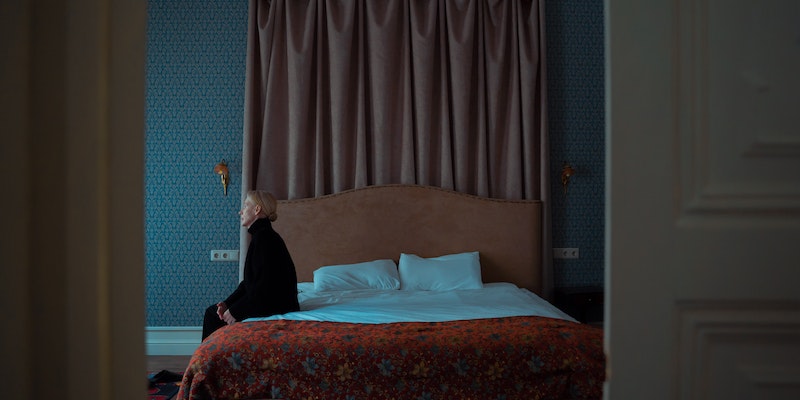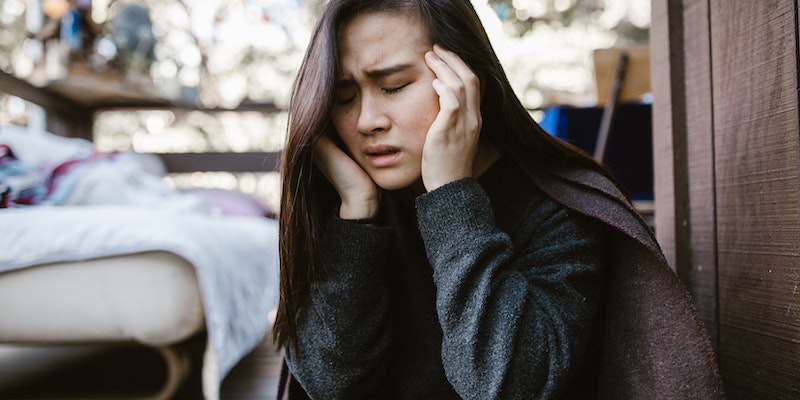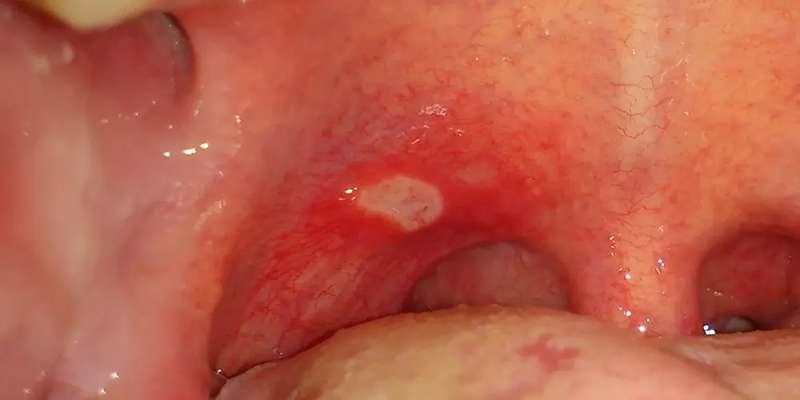
Insomnia and depression are linked. People who sleep poorly may have a tenfold higher risk of depression. Depressed people sleep poorly 75% of the time. Poor sleep can impair mood regulation, making you more prone to depression months or years later. Depression limits restorative slow-wave sleep at night.
A quarrel with your spouse, financial worries, or a long nighttime commute may induce nocturnal wake-ups and insomnia in depressed people. Understanding how depression anxiety and insomnia are linked might help you identify concerns, get treatment, and recover. Feel rejuvenated and ready to enjoy life again.
Understanding Depression and Its Symptoms
Depression is a mental illness caused by several factors. The most common symptoms of depression are listed below.
Disinterest in Things
It's common for people struggling with depression to lose interest in or pleasure from things they used to like doing. It's possible to lose interest in even the most beloved pastimes.
Despair and Discouragement
Depression is characterized by an overpowering sense of hopelessness and a persistent sensation of low mood. This emotional weight can make everyday activities difficult.
Shifted Sleep Schedules
A disturbed sleep cycle, waking up too early, or sleeping late can cause depression. Also, if you feel trouble while sleeping or it takes longer to fall asleep, this can cause depression.
Changes in Appetite
Significant changes in appetite are a potential symptom of depression. Some people may eat less, while others may find comfort in binge eating.
Self-doubt and Blame for One's Shortcomings
A depressed person's distorted view of oneself as a failure or a burden on their loved ones is a common symptom. This low opinion of oneself feeds into the vicious cycle of depression.
Difficulty focusing on tasks and making decisions:
During depressed periods, one's capacity to focus on tasks and make judgments may be significantly hampered. Mundane things like watching TV or reading may take a lot of energy.
Knowing these signs is essential for early depression detection and treatment. Individuals may take charge of their mental health by being aware of these issues' warning signals and effects. Overcoming insomnia and depression and regaining a satisfying life is possible with professionals' support and effective coping mechanisms.
Interconnection of Sleep and Mental Health

Studies increasingly link depression anxiety and insomnia. Sleep boosts mood, understanding, feeling, and behavior regulation. Good sleep improves stress management and emotional resiliency. Insufficient sleep worsens stress-related emotional reactions, making daily tasks harder to handle.
Cognitive Functions
Attention, learning, and memory consolidation require sleep. Sleep deprivation can damage these functions, impacting our perception and interaction with the world.
Mental Illnesses
Sleep affects mental health. Sleep issues can cause anxiety, melancholy, and suicidal thoughts. Mental health concerns often cause persistent sleep disorders, creating a circle.
Stress and anxiety
Research shows poor sleep can increase worry and discomfort, particularly in healthy people. This highlights the complex relationship between sleep and mental health.
Improving sleep quality and quantity is crucial. Addressing sleep issues can reduce mental symptoms. Maintaining a sleep pattern, providing a calm sleep environment, and practicing relaxation can improve sleep quality. Overall, sleep is essential to mental wellness. Sleeping well can improve emotional stability, cognitive sharpness, and quality of life.
Treatments of Depression
Understanding depression treatment options encourages patients to work with their doctors to create a customized strategy. Psychotherapy, lifestyle modifications, alternative treatments, and medicines aim to reduce depression, improve quality of life, and promote mental health. Open communication with healthcare experts is crucial to navigating the treatment process and finding the best strategy for each patient. A few treatments for depression are listed below.
Talk Treatment (psychotherapy)
Psychotherapy, like CBT, is essential for depression treatment. It entails talking to a mental health expert about unpleasant thoughts and actions. Therapists help people cope and stay cheerful.
Complementary Therapies
Complementary treatments aid depression therapy. Relaxation techniques, meditation, and vitamins can improve mental health and symptoms. These procedures typically enhance other medicines.
Prescription Drugs
Depression is often treated with antidepressants. Due to unique responses and side effects, selecting the proper antidepressant may involve trial and error. SSRIs and SNRIs are significant antidepressants. SSRIs like Prozac, Paxil, and Zoloft are popular. SNRIs like Effexor XR and Cymbalta are also extensively used.
Personalized Drug Treatment
Personal medical history, side effects, and preferences are considered before prescribing antidepressants. And doctors recommend a light dose at the start and increase it later.
Trial and Patience
Finding the best antidepressant takes time. Medication advantages may take weeks to appear. Based on the patient's reaction, doctors may change antidepressant doses and kinds.
Combination Therapy:
To control depression, a combination of antidepressants or other drugs and vitamins may be administered. This technique improves therapy effectiveness and targets particular problems.
Preventions

A meaningful, intellectually, and physically healthy existence requires preventing depression and insomnia test. Here are simple ways to protect your mental and emotional health:
Live Healthily
Eat a balanced diet that includes fresh fruits, eggs, yogurt, and all the essential nutrients your body needs.
Prioritize Mental Health
Reduce stress using deep breathing, meditation, yoga, or mindfulness. Spend time on soothing things like reading, hobbies, and nature.
Build a Supportive Network
Keep in touch with friends and family. Reach out to mental health specialists or support groups while experiencing obstacles to avoid emotional load.
Practice Mindfulness and Relaxation
Use relaxation applications or recordings to lead you through tranquil mental imagery to relax and sleep better. Progressive muscle relaxation: Learn and practice muscular tensing and releasing strategies to relax and fall asleep.
Seek Professional Help Early
Regular checkups: To monitor your physical and emotional health, schedule regular checkups and handle any issues. Consult a mental health expert for depression or sleeplessness evaluation and help.
Healthy Work-Life Balance
Set boundaries between work and personal life to avoid burnout and preserve balance. Take breaks from work to refresh your mind and body.
Conclusion
We cannot overstate the complex relationship between insomnia and depression. Poor sleep may cause and exacerbate sadness, creating a cycle that can harm mental health and quality of life. Early identification and treatment of depression include recognizing signs including disinterest in activities, disturbed sleep cycles, tiredness, and food abnormalities.
The connection between depression anxiety and insomnia highlights the necessity of its impact on emotional stability, cognitive sharpness, and everyday functioning. Daily stress management, relaxation, and adequate sleep can improve mental health. A happier, healthier life requires intentional sleep management and mental health care.



